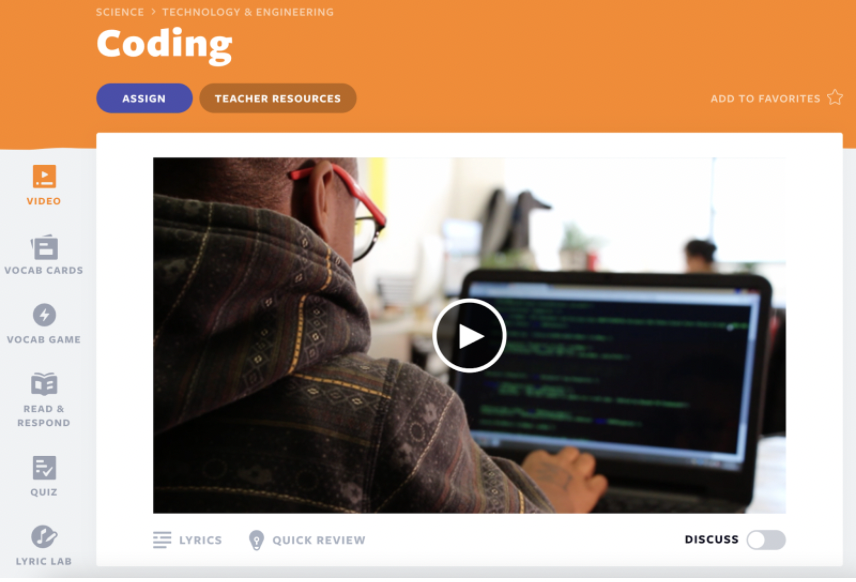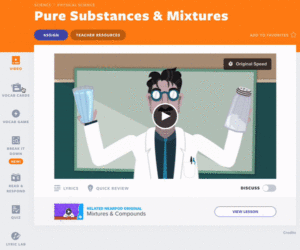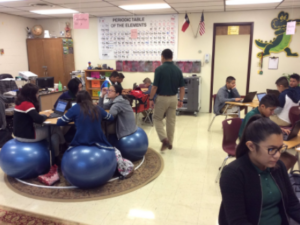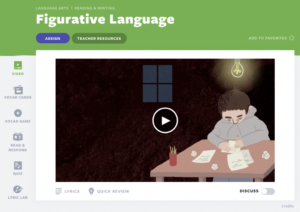Give every student in your classroom the opportunity to learn about computer science by participating in Computer Science Education Week. With Flocabulary’s resources, you can spark curiosity, build foundational skills, and introduce computer science and coding lessons to teach beginners.
Flocabulary’s hip-hop infused videos and lessons can be integrated into your daily teaching. Interested in accessing these lessons? Sign up for Flocabulary!
What is Computer Science Education Week?
Computer Science Education Week is an annual event that aims to excite students around the world about computer science. This year, CSED Week is December 5th-11th. Students can also participate in an Hour of Code, which is a dedicated hour during the class time where students learn to code.
Computer Science Education Week: Coding Lessons to Teach Students
An Introduction to Coding

This lesson reviews the top 10 reasons to code while providing an introduction to computer programming. In the video, students will learn about the different types of work computer programmers do and some of the perks of a career in coding. Use this video as an instruction for enhancing STEM instruction in your classroom.
Coding Lessons: Algorithms

Algorithms help us complete tasks and make our computers work when written in code. In this lesson, students will identify examples of algorithmic thinking in daily life, write simple algorithms in pseudocode and compare competing algorithms by weighing their advantages and disadvantages.
Coding Lessons: Conditionals

This lesson introduces students to one of the main concepts used across coding languages: conditionals. Students learn that a conditional statement tells a program to execute different actions depending on whether a condition is true or false. Walk through an example of a conditional statement that could exist in a video or computer game code and show how it would look in Python, a coding language.
Coding Lessons: Events

This lesson introduces students to events, one of the main concepts used across coding languages. Students learn the concept of event handlers, the pieces of code that dictate what happens when a certain event occurs, and demonstrate how events and event handlers allow programs to be interactive.
Coding Lessons: For Loops

This lesson introduces students to loops, one of the main concepts used across coding languages. Students learn that loops allow programmers to easily repeat code; in particular, loops let programmers repeat code a specific number of times.
Robots

In this lesson, students learn what a robot is, see examples of robots you might know from daily life, and discover what the field of robotics might bring us next.
Katherine Johnson & the Human Computers

This lesson tells the biography of Johnson, a female African-American research mathematician who made huge contributions at NASA during the Space Race but remains largely unsung in US history. Elevate your science instruction by teaching students about major events and achievements in Johnson’s life. This video explains the work of human computers, women who completed crucial, precise math calculations for NASA’s engineers.
Computer Programming

This lesson breaks down how you can use a five-step process to create a computer program of your own. Creating a computer program involves similar steps to any problem-solving task. So it’s not just about coding, though coding is part of it!
The Battle Between People and Machines

This lesson includes fifth-grade vocabulary words that students are likely to encounter on state tests. It teaches the following words: aggressive, deprive, endanger, exasperate, exult, overthrow, portable, slither, suffocate and withdraw. This song asks the question: What would happen if our own computers stopped obeying us?
Start using Flocabulary for your computer science lessons!
We hope these lessons are useful for you to use in your classroom year-round and for Computer Science Education Week. Flocabulary has engaging hip-hop standards-aligned videos and lessons you can use for all K-12 Subjects. If you’d like to access the lessons mentioned here and more, sign up below!
- SEO Powered Content & PR Distribution. Get Amplified Today.
- Platoblockchain. Web3 Metaverse Intelligence. Knowledge Amplified. Access Here.
- Source: https://blog.flocabulary.com/computer-science-education-week/
- 10
- a
- About
- access
- accessing
- achievements
- across
- actions
- advantages
- aggressive
- aims
- algorithmic
- algorithms
- All
- and
- annual
- around
- Battle
- Beginners
- between
- breaks
- bring
- build
- Career
- certain
- class
- code
- Coding
- collection
- compare
- competing
- complete
- Completed
- computer
- computer science
- computers
- concept
- concepts
- condition
- contributions
- could
- cover
- create
- Creating
- crucial
- curiosity
- daily
- December
- dedicated
- demonstrate
- Depending
- different
- discover
- down
- during
- easily
- Education
- Education Week
- ELEVATE
- engaging
- Engineers
- Ether (ETH)
- Event
- events
- example
- examples
- execute
- Explains
- female
- field
- following
- from
- game
- happen
- happens
- help
- here
- history
- hope
- How
- HTTPS
- huge
- human
- identify
- in
- includes
- integrated
- interactive
- interested
- introduce
- Introduces
- Introduction
- IT
- Johnson
- Know
- language
- Languages
- largely
- LEARN
- lesson
- Lessons
- Life
- likely
- Look
- Machines
- made
- Main
- major
- make
- math
- max-width
- mentioned
- might
- more
- Nasa
- next
- number
- ONE
- Opportunity
- own
- part
- participate
- participating
- particular
- People
- perks
- pieces
- plato
- Plato Data Intelligence
- PlatoData
- problem-solving
- process
- Program
- Programmers
- Programming
- Programs
- providing
- Python
- question
- Race
- reasons
- remains
- repeat
- research
- Resources
- Reviews
- robot
- robotics
- robots
- Science
- show
- sign
- similar
- Simple
- skills
- So
- some
- Space
- space race
- Spark
- specific
- State
- Statement
- Stem
- Steps
- stopped
- Student
- Students
- Task
- tasks
- Teaching
- tells
- tests
- The
- the world
- their
- Thinking
- this year
- Through
- time
- times
- to
- top
- Top 10
- true
- types
- us
- use
- Video
- Videos
- week
- weighing
- What
- whether
- which
- while
- WHO
- will
- withdraw
- Women
- words
- Work
- world
- would
- write
- written
- year
- Your
- zephyrnet











